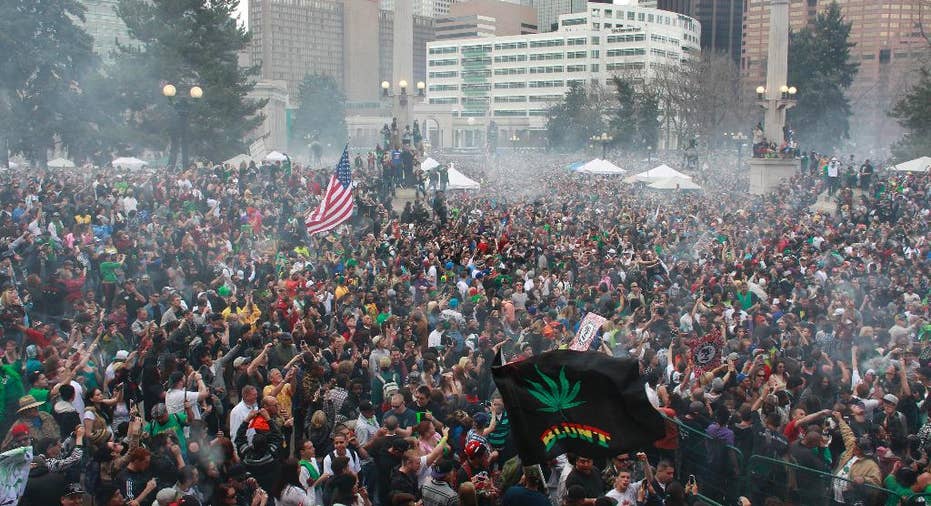Police tracking social media during protests stirs concerns

DENVER – Increasingly common tools that allow police to conduct real-time social media surveillance during protests are drawing criticism from civil liberties advocates, who oppose the way some departments have quietly unrolled the technology without community input and little public explanation.
Police say services such as Geofeedia, which map, collect and store information from social media posts, are a powerful way to help find crime witnesses, spot brewing problems during large gatherings and gauge community sentiment.
Groups like the American Civil Liberties Union say the software can be easily used to collect information on peaceful protesters or target certain groups. The programs let police gather and record all online posts within specific geographic boundaries, and some allow users to do keyword searches for certain words or hashtags.
Law enforcement agencies have used the services to mine posts on Facebook, Twitter, Instagram, YouTube and other sites during parades, protests and other large events.
One company marketing the technology, Media Sonar, suggested police track hashtags such as #BlackLivesMatter and #imunarmed, and Geofeedia offered webinars on the ways Baltimore County police used its software during protests over the death of Freddie Gray, a response to an ACLU records request showed.
The group's Colorado chapter requested more information Thursday on how Denver police uses the Geofeedia program, saying the department could be gathering intelligence on law-abiding demonstrators.
The department agreed in 2003 to stop collecting information on protesters not suspected of crimes after the ACLU found it kept thousands of "spy files" on peaceful groups, including a Franciscan nun and Amnesty International. The group sued to keep Denver police from gathering such information without a clear law enforcement purpose.
"Now they've bought software that lets them do some of the things they were doing so much easier and at a computer screen," said Mark Silverstein, the chapter's legal director.
Denver police didn't immediately respond to requests for comment.
It is unclear how many departments nationwide are using such software programs. Police in Baltimore, Seattle and Dallas have used the program. Los Angeles police officials wrote in a 2014 grant application for the software that more than 500 police agencies were already using it.
The ACLU of California found at least 13 police agencies acquired or used Geofeedia in that state alone.
The software is also used by news organizations, retailers and companies to quickly analyze large amounts of social media. The Mall of America used the program to engage shoppers, according to the company's website.
Activists are concerned that Geofeedia is marketing itself as a way to target protesters.
"These programs are a deterrent to free speech," said Baltimore activist Kwame Rose, who was arrested while protesting the mistrial of a Baltimore officer charged in the death of Gray, whose neck was broken in the back of a police van. "It's a waste of resources that could be spent on implementing programs for police reform."
A Geofeedia representative and Baltimore police did not immediately return calls for comment.
The software can be a valuable public safety tool if used transparently, said Jim Bueermann, president of Washington, D.C.-based nonprofit Police Foundation, which is seeking money to study the value of such social media tracking programs.
"As social media becomes an increasingly important way to interact with each other, it's a rational and natural response that the police would try to engage social media on multiple levels to try to get a better handle on how people feel about the department or certain incidents that happen," he said.
___
This story has been corrected to show that the ACLU of California found at least 13 police agencies acquired or used Geofeedia in the state, not 20.



















